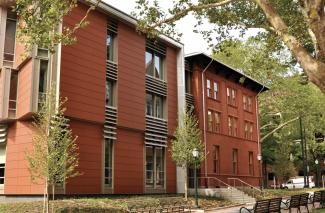
2020 has, thus far, witnessed a combination of events that have demanded of each of us a response. The murders of George Floyd, Breonna Taylor, and so many others at the hands of police; the continued pattern of police violence in response to protests demanding reform; the ways in which the COVID-19 pandemic has highlighted (again) serious and devastating inequalities of race and class; and the deeply troubling national response to all of this by the current administration have left many of us profoundly saddened and outraged. We find ourselves face-to-face with the consequences of the deep and systemic racism that remains so entrenched in our society and which manifests in so many other facets of life in the United States (income inequality, the criminal punishment system, access to health care, housing and food insecurity, and education, to name a few). The fact that the protests and expressions of solidarity have been global in scope, moreover, reminds us that Black populations the world over continue to struggle against local instantiations of racial injustice.
As we prepare to embark on another academic year, it is incumbent on us to reflect on how these larger patterns of inequality have conditioned the institutional spaces we inhabit in music studies and composition. The faculty in the Department of Music at the University of Pennsylvania encourage thinking together about what the work of decolonizing music studies looks and sounds like. We also encourage thinking together about the many ways that diversity can be intentionally and proactively cultivated within our faculty, student body, staff, and curriculum. We remain convinced that art, music, and beauty have much to contribute to moments such as these and that they can be productively mobilized to express our anger, grief, and solidarity, and to envision productive paths toward healing.